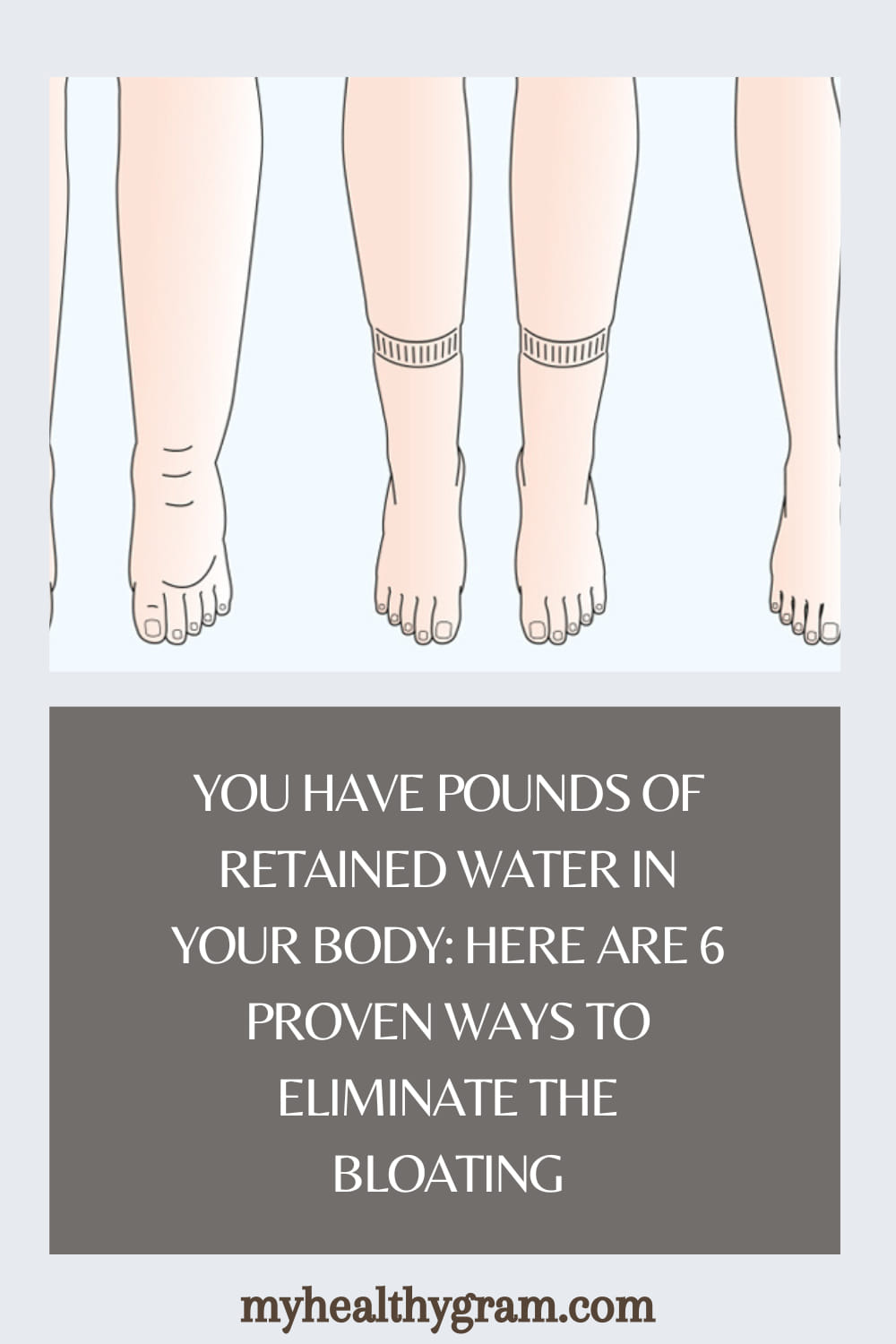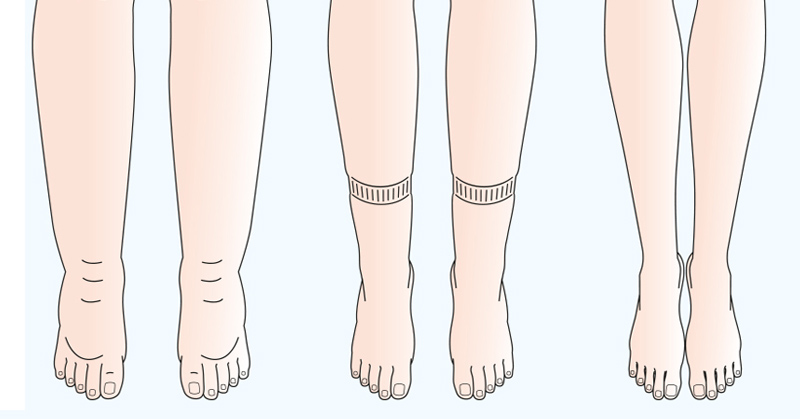Edema, also known as water retention, is a disorder in which fluid accumulates within the tissues and cavities of the body or the circulatory system. Swellings in the legs, feet, ankles, and hands are prevalent before or during pregnancy.
Edema is also common in those who are idle, on long-term drugs, bedridden, or have sedentary lives. Water retention is rarely fatal, but it can be an indicator of a more serious problem, such as heart failure or kidney illness. However, in most circumstances, water retention can be avoided, managed, and swelling decreased.
You will know how to treat edema if you identify the underlying reason. Some of the most common reasons of water retention are as follows:
Excessive Sodium Intake
When eating high-sodium foods and not drinking enough water, the body goes into “reserve mode” and begins to retain water. In this situation, the cells may expand 20 times with water to dilute the salty environment.
Furthermore, salt is not the only sodium-rich food; canned vegetables, some condiments, and processed meat have all been found to be high in sodium.
In contrast, there is a salt that does not cause water retention but can help you reverse it. Water retention can be helped by consuming water with Celtic sea salt or Himalayan salt.
Vitamin B6 deficiency
Because vitamin B6 regulates the body’s water balance, a shortage of it may result in water retention.
According to a study published in the Journal of Caring Sciences, women suffering from water retention owing to premenstrual syndrome found vitamin B6 to be particularly effective.
They noted that it decreases symptoms more effectively than any other supplement they had previously used. Because this vitamin is water-soluble and requires multiple cofactors to function properly, it is best taken in the form of whole meals.
Chicken, tuna, turkey, sunflower seeds, dried fruit, pistachio nuts, unpeeled potatoes, tuna, chicken, turkey, lean beef, and bananas are also high in vitamin B6.
Potassium deficiency
They noted that it decreases symptoms more effectively than any other supplement they had previously used. Because this vitamin is water-soluble and requires multiple cofactors to function properly, which contributes to edema.
Chicken, tuna, turkey, sunflower seeds, dried fruit, pistachio nuts, unpeeled potatoes, tuna, chicken, turkey, lean beef, and bananas are also high in vitamin B6.
Potassium is found in practically all fruits, although the largest concentrations are found in honey melon, watermelon, and rock melon. Instead of taking supplements, you should improve your potassium intake by eating a variety of fruits and vegetables.
Dehydration
Dehydration occurs when the body does not get enough water. As a result, the body retains water in order to survive. Regular drinking of water and potassium-rich drinks can help to minimise edema and dehydration.
Drink plenty of water until the water retention subsides, and avoid soda and caffeine, which deplete your body even more.
Lack of Magnesium
One of the most prevalent symptoms of magnesium insufficiency is water retention. Because magnesium is required for practically every bodily function, low levels impair various functions and lead to water retention.
According to one study, taking 200 mg of magnesium daily reduced water retention in women experiencing premenstrual symptoms.
The increase of magnesium-rich foods or the use of high- quality magnesium supplements significantly reduces edema. Magnesium-rich foods include dark chocolate, dark green vegetables, avocados, nuts, whole grains, peas, spinach, yogurt, and dried fruits.
Excessive consumption of Processed Foods
In addition to being high in sodium and sugar, processed meals contain a slew of artificial food additives that function as poisons and harm your liver and kidneys. Sugar-rich diets, particularly those containing artificial sweeteners, cause fast blood sugar and insulin spikes, which cause sodium retention by cells through boosting reabsorption in the kidneys.
Therefore, you should avoid processed foods. You should also detox your body with juices in order to preserve the optimal condition of the liver and prevent serious health issues.
Furthermore, there are some herbs which can have an extremely beneficial effect in the case of water retention. Namely, these herbs have strong diuretic properties, and they include:
- Horsetail
- Dandelion
- Corn silk
- Nettle
- Hibiscus
- Garlic
- Fennel
- Parsley

